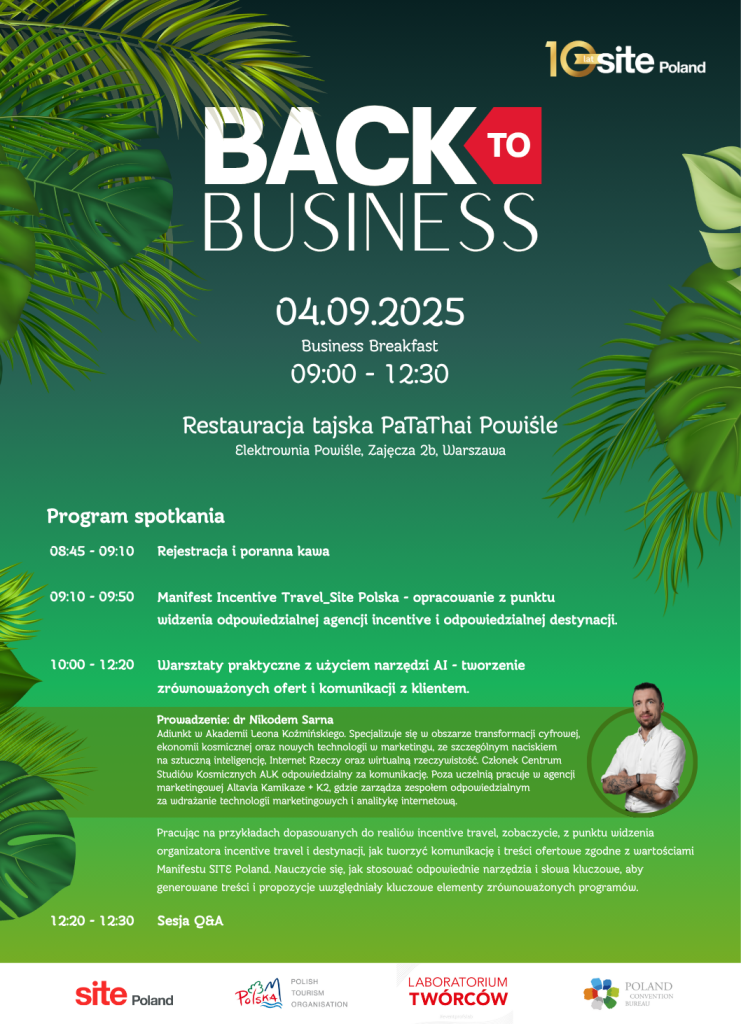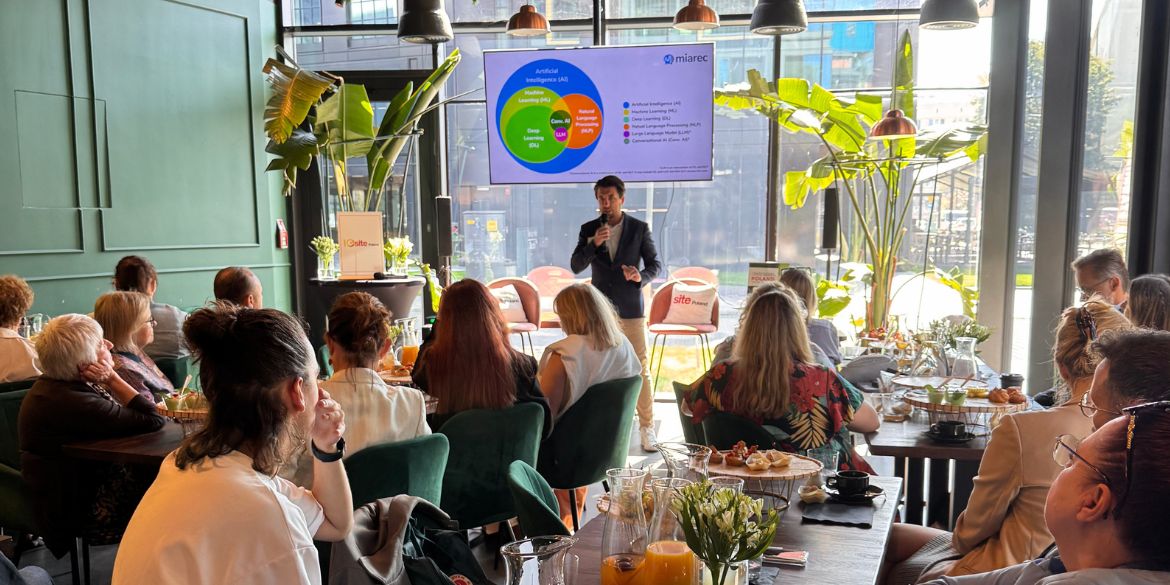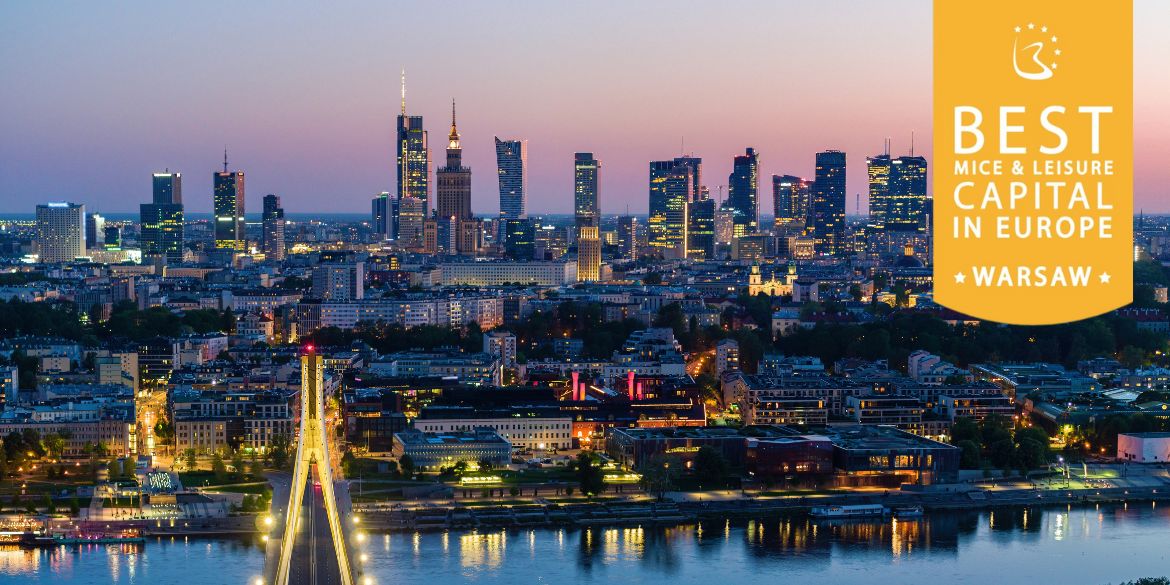On 4 September, at Elektrownia Powiśle in Warsaw’s Pathatai restaurant, another edition of the Laboratorium Twórców (Eventprofs Creators Lab) series took place, focusing on the role of artificial intelligence in business tourism and incentive travel. The workshop, entitled “Designing Sustainable Offers and Client Communication with the Use of AI”, was led by Dr Nikodem Sarna, Assistant Professor at Kozminski University and an expert in digital transformation and emerging technologies.
The training was organised as part of the SITE Poland – Back To Business meeting and represented a joint initiative of SITE Poland and the Polish Tourism Organisation – Poland Convention Bureau. Participants included members of SITE Poland, incentive travel agencies, and POT-recommended representatives of regional tourism organisations and convention bureaux.
About the AI Expert
Dr Nikodem Sarna, Assistant Professor at Kozminski University, conducted the session. He specialises in digital transformation, the space economy, and new marketing technologies, with particular expertise in artificial intelligence, the Internet of Things, and virtual reality.
He is a member of the Kozminski University Space Studies Centre, responsible for communications. Beyond academia, he works at Altavia Kamikaze + K2, managing a team focused on marketing technologies and digital analytics.
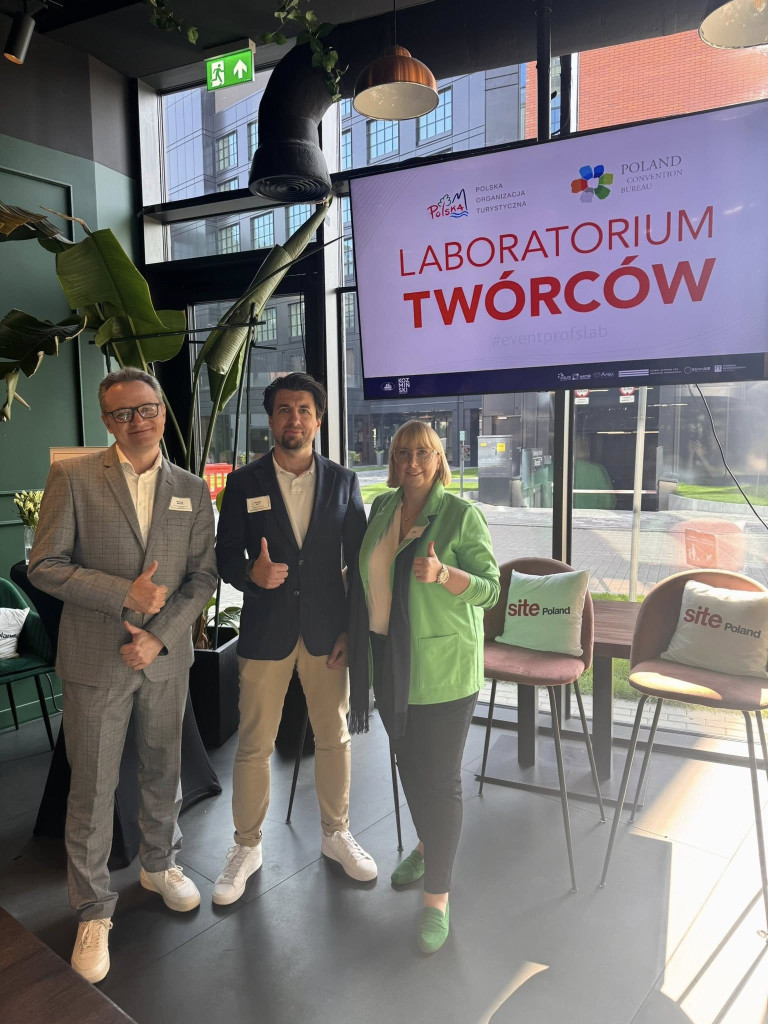
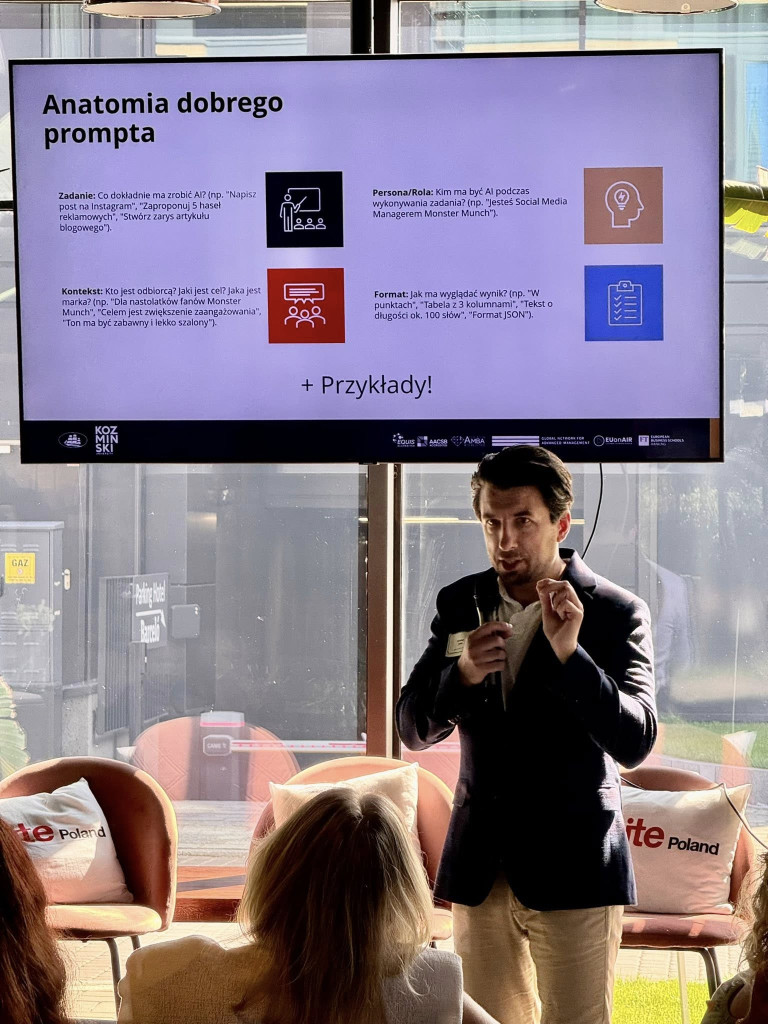
AI Tools and Incentive Travel
In the theoretical part, Dr Sarna introduced participants to key concepts of machine learning, deep learning, large language models (LLMs), and generative AI. He showcased practical applications of AI in marketing and personalisation of offers, addressed potential risks such as so-called “AI hallucinations,” and shared best practices in prompt engineering.
Selected takeaways:
What is Artificial Intelligence?
- AI is not human intelligence but a tool based on data analysis and generating the most probable answers.
- Think of it as a “digital Swiss Army knife” – highly useful, but requiring responsible use.
Machine Learning
- AI learns to solve problems from data rather than manual programming.
- Applications include data classification, trend forecasting, spam filtering, and recognising consumer behaviour patterns.
Deep Learning
- Based on multi-layer neural networks, enabling analysis of images, audio, and text.
- Applied in image and voice recognition, as well as unstructured data analysis.
AI in Marketing
- Targeting – grouping similar users.
- Campaign optimisation – selecting channels and messages using historical data.
- Personalisation – tailoring offers to client needs.
- Predictive analytics – forecasting customer spending or campaign effectiveness.
Generative AI and Large Language Models (LLMs)
- Tools such as ChatGPT, Claude, Perplexity, and Genspark can understand and generate human-like text.
- Core mechanisms: tokenisation, vectorisation, and attention mechanisms.
- Differentiating factors: number of parameters, context window, multimodality (text, image, sound).
- Challenges include “AI hallucinations” – plausible but incorrect outputs.
Global vs Local Models
- Difference between large, global LLMs and smaller, specialised local models such as Poland’s Bielik and PLLUM.
Anatomy of a Good Prompt
- Clear task definition.
- Context (purpose, audience, tone).
- Assigning AI a role (e.g., “social media manager”).
- Specifying output format (list, table, fixed-length text).
- Additional strategies: asking for multiple versions, pros & cons, or challenging its own answer.
Limitations & Best Practices
- AI requires critical evaluation – “good input equals good output.”
- Avoid anthropomorphising AI, though natural dialogue may help structure prompts.
Hands-On Workshop
The practical part of the Creators’ Lab involved participants working in eight groups to design sustainable incentive travel proposals in response to a client brief. They used AI tools including Perplexity, Claude, NotebookLM, and ChatGPT, applying the best practices outlined in the Sustainable Incentive Travel Manifesto.
The exercises demonstrated how AI can support proposal creation, client communication, and the planning of incentive programmes aligned with sustainable development principles.
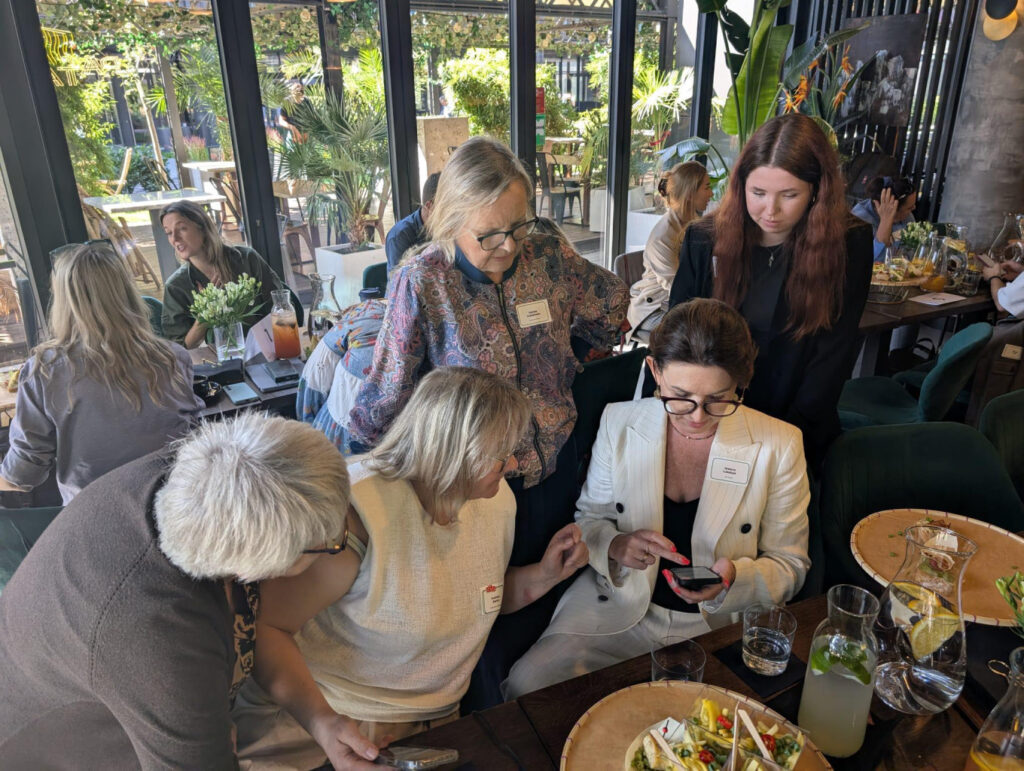
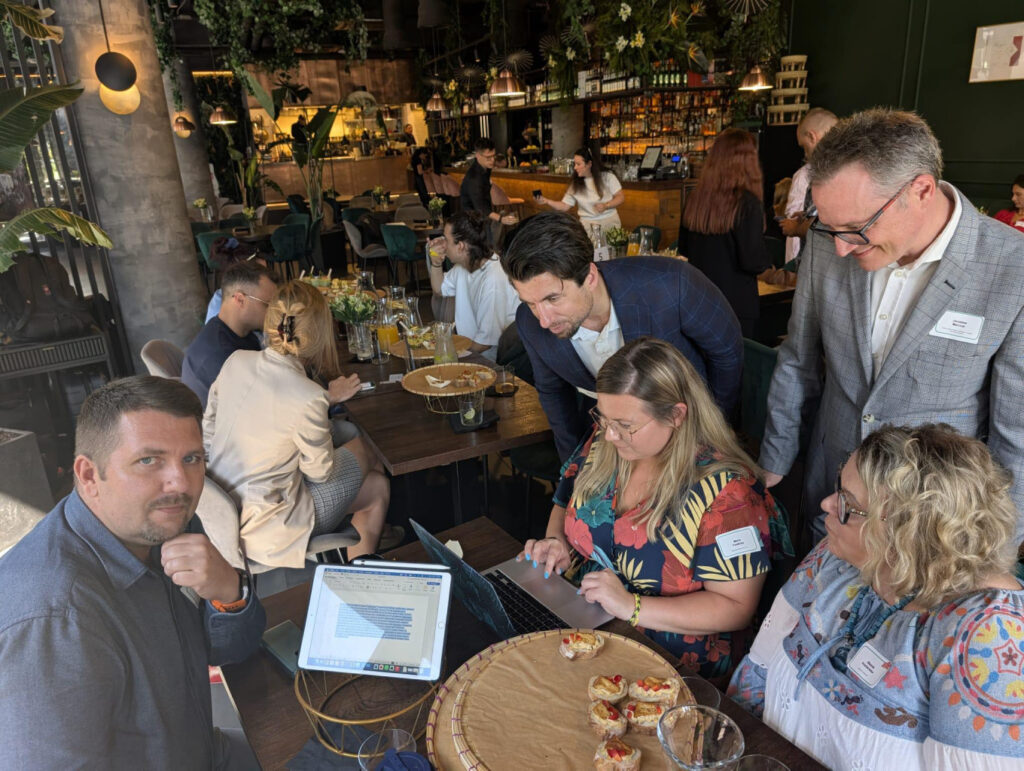
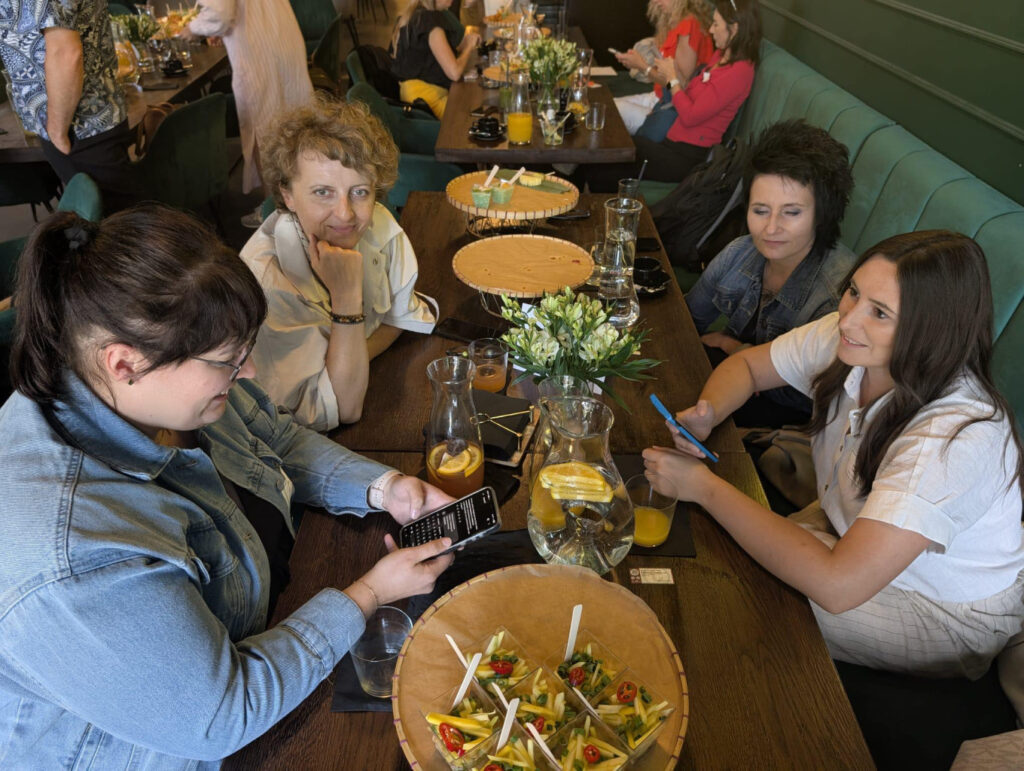
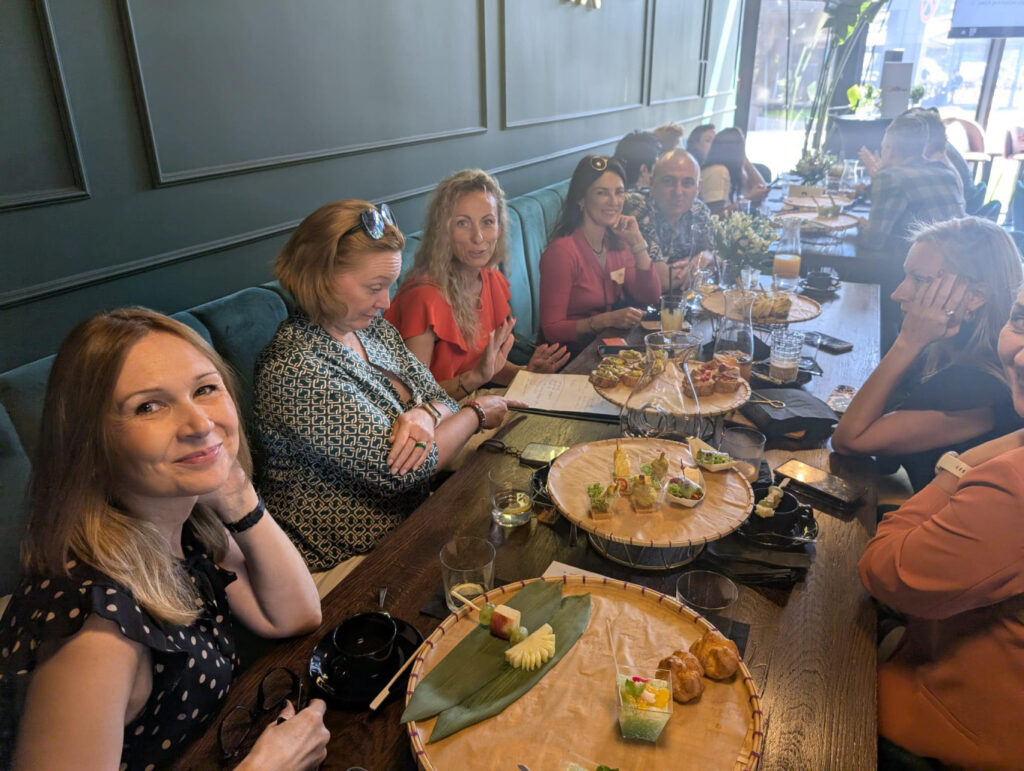
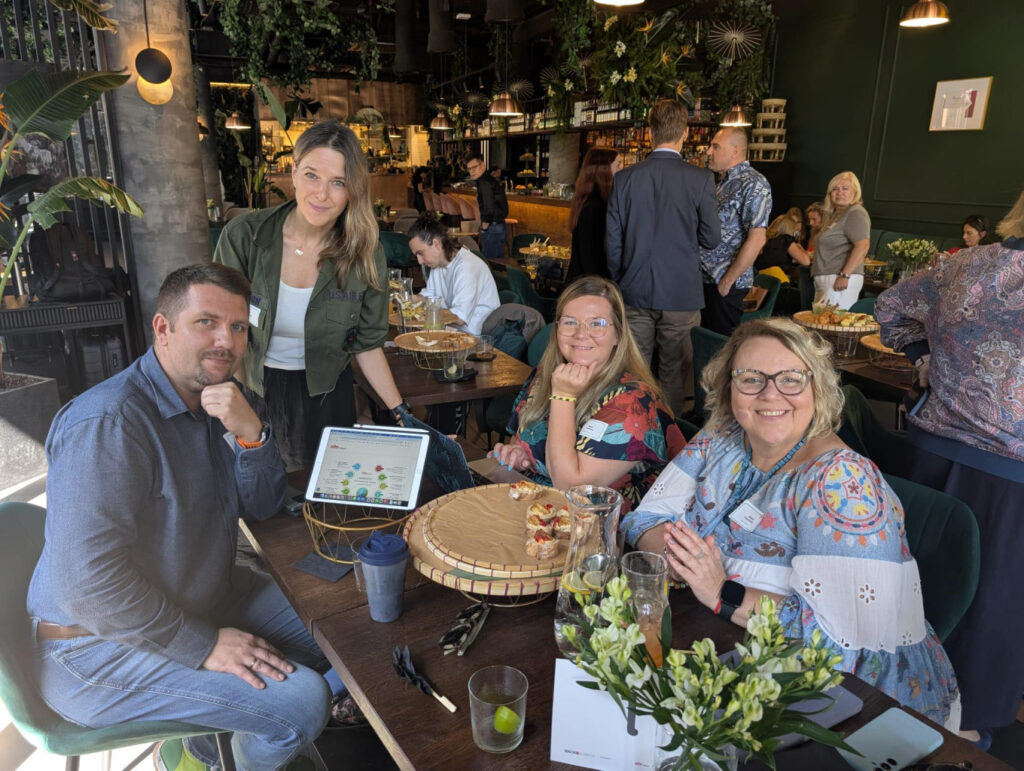
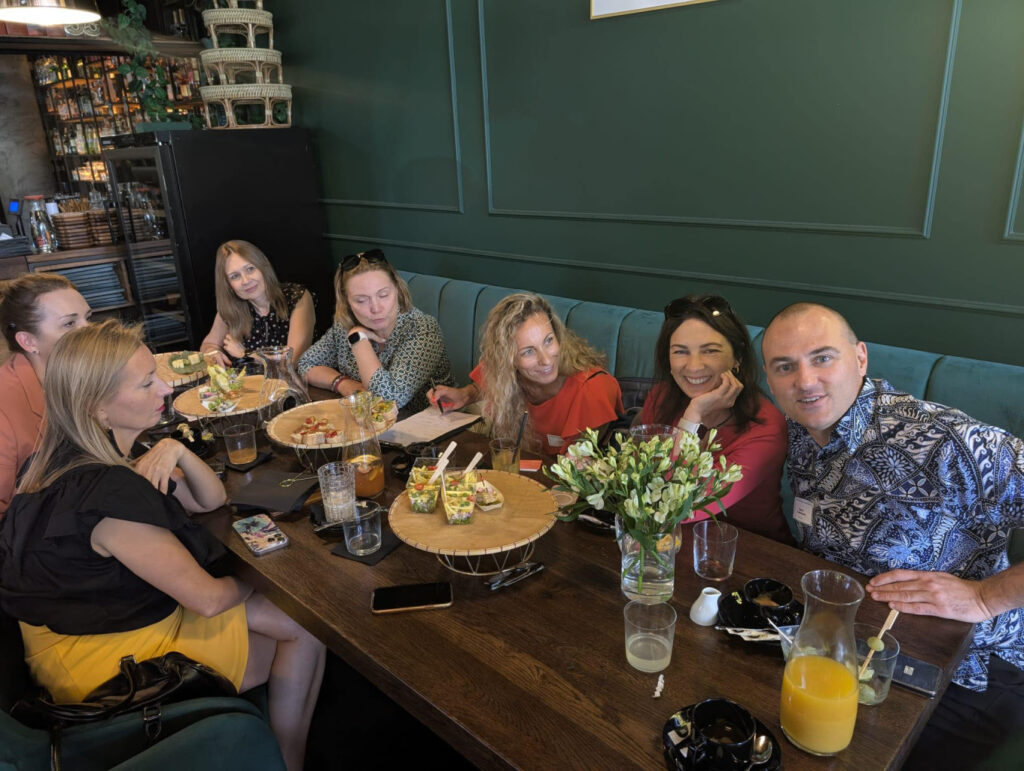
Meeting Summary
The session demonstrated that AI is becoming not only a source of inspiration but also a practical tool supporting the daily work of business event organisers and destinations. At the same time, it requires a mindful approach from users and the ability to combine technology with industry expertise.
The initiative is another step by the Polish Tourism Organisation in strengthening the competencies of the MICE sector and advancing the professionalisation of Poland’s meetings industry.
Compiled by Jarosław Marciuk #PolandCVB #EventprofsLAB





